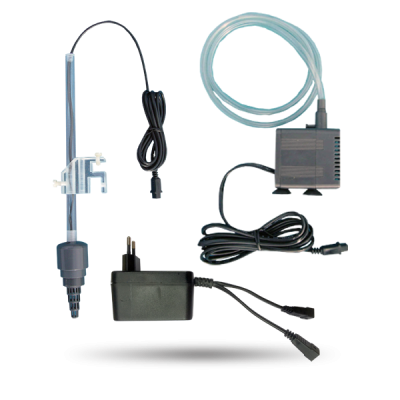Top-up System With Low Voltage Pump
Effective in Controlling Evaporative Loss.
In salt water systems the loss of water from a tank is by evaporation and this is of fresh water only, which will increase the salinity within the aquarium. This can be automatically replenished using a float switch and controller such as the D-D Multi Function Float Switch System. As the float switch rises and falls it switches the controller on and off, which in turn controls a pump or solenoid to top up the lost water.
The unit comes complete with a low voltage controller/mains transformer, EU to UK adapter, low voltage pump, float switch device, snail guard and top up hose. Assemble the components as shown in the Multi Function Float Switch System Instructions.
For evaporative top up operation, install the pump in a fresh water reservoir or similar container and connect the clear hose to the pump outlet. The other end of the hose should be inserted into the hole that has been provided on the mounting bracket. Ensure during normal operation that this end of the hose does not terminate beneath the water level, as this will cause water to back siphon once the pump is switched off.
Product Code RUW12LVP
